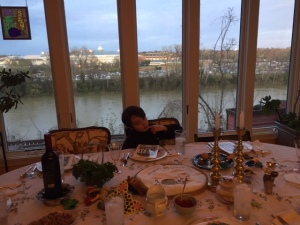I repost this essay every year around September 11. I don’t see why this year should be any different.
I
Change rarely visits Bialystoker Street. Every morning, men in black hats make their way to the Bialystoker synagogue for morning prayer. About an hour later, women wearing wigs and black stockings emerge from their apartments, pushing baby carriages with two or three other children in tow. The little boys wear yarmulkes. The girls have patent leather shoes.
So it surprised me to see that the bench outside my old apartment building was no longer there. It was a standard-issue bench with solid-concrete sides and wood slats painted parks-department green. The whole row of them was gone. Poof. Vanished. The only thing that remained was a couple of indentations on the sidewalk.
II
My father complained over dinner about how my mother had this terrible habit of using the word “she” twice in one sentence, when she was referring to two different people.
“I’m constantly having to ask her, ‘She, who?’ my father said, and then turning to my mother, he said, ‘You can’t say “she” twice in one sentence and think I’ll know who you mean.’”
“Eddie, will you stop criticizing me? Enough,” my mother said, throwing her fork down on the table.
It might have been any old day. But it wasn’t. My father was dying of esophageal cancer. As a last ditch effort, he’d signed up for a clinical trial at Memorial Sloan Kettering that had a 66-percent success rate. But we were told that morning that he was among the unlucky 34 percent. His cancer was spreading, and he was out of the program. My father was going back to his home in Florida to die.
“Let’s get some munchies,” he said as we walked back to my parents’ hotel. Despite carrying around coffee cakes, pretzels and little cans of apple sauce to nibble on in between meals, my father’s 185-pound frame was down to 128 pounds.
“Everything’s closed,” I said.
We were sitting in a restaurant on 36th Street and Sixth Avenue, so close to the Empire State Building that if it fell, it would hit us. Things like that mattered that day. It was September 11, 2001. There was an eerie quiet in Midtown. Sixth Avenue was nearly empty but for a lone man in a sweatshirt walking down the street with a video camera. At the corner of 35th Street, a homeless man and a man in a suit stood next to each other, watching the news on a television set that was resting on top of a garbage pail. Police tape blocked pedestrians from walking on 34th Street as armed men in uniform walked bomb-sniffing dogs back and forth in front of the Empire State Building.
I dropped my parents off at their hotel and walked to Pennsylvania Station, hoping a store along the arcade would be open. It was 8 p.m. and hundreds of commuters were standing near the board that listed train departures. They were stranded when the entrances and exits to Manhattan were sealed.
My parents were among the stranded. They had come into Manhattan from Long Island for chemotherapy and were on a subway heading to the hospital when the second plane hit. Subway service was suspended, and my parents were forced out of the train at Times Square. They walked all the way to the hospital on the East Side only to find chemotherapy was canceled, but my father was given his CAT scan results. The tumors had not shrunk. They had grown. Dejected, my parents tried to hail a taxi back to Penn Station but every cab was occupied. They eventually bribed a taxi driver, who already had a passenger inside, while he was sitting at a traffic light. They made their way back to Penn Station only to find that the train service to Long Island was suspended, so they orbited the station, trying hotel after hotel until they finally found a vacancy.
I found a store that was open and bought a bag of sugar-coated nuts, M&Ms, potato chips and two toothbrushes. When I returned to their hotel room, my parents were sitting up in bed, watching CNN. They invited me to spend the night. The three of us squeezed into one bed with me sandwiched between them.
“What are you scratching?” my mother asked.
“I think my cat gave me fleas,” I said.
“Go take a shower,” my father said abruptly.
I stood in the shower and thought about a banker I once interviewed for a story in World Trade Center 7 and how that building was no longer there. I thought about my siblings and wondered if any of them ever had fleas. I wondered if I would ever feel my father’s approval or if that void was so deep that even a thousand loving gestures wouldn’t plug the hole.
When I got out of the shower, I climbed back into bed with my parents. I tossed and turned for about an hour on account of my father’s snoring.
“He’s been doing that since he got sick,” my mother whispered. It was something else about him I didn’t know.
The following day, my parents were able to get back to Long Island, and for the next several days, they sat on a couch in my aunt’s house watching CNN. In the footage, the towers are up. The towers fall down. The puff of smoke. The towers are up. The towers fall down. The puff of smoke. The news showed young people lighting candles in Union Square. Mothers and fathers and husbands and wives were wandering the streets, holding up photos of their loved ones in front of the television cameras or taping their pictures to utility poles. At the time, it seemed appropriate. A week later, it was clear an entire city had been in denial.
My parents returned to Florida at the end of September. I followed them down there about a week later. For two months, I researched cures for cancer. I joined a message board for people with esophageal cancer. I investigated the various treatments, proven and unproven. I bought a used book called Cancer Therapy: The Independent Consumer’s Guide to Non-Toxic Treatment & Prevention. I ignored thoughts about why the person who bought the book no longer needed it. I couldn’t convince my father to get acupuncture. He didn’t like needles. But I talked him into seeing a Chinese medicine doctor in a nearby strip mall. The doctor’s face was black and white.
“What was wrong with his skin?” my father asked as we left the doctor’s office.
“I don’t know. Something with his pigmentation.”
“If he can’t fix his own skin …”
“Dad. I know,” I said.
I went to Whole Foods Market almost every day to buy whole wheat pasta, organic vegetables and wheat grass. Blueberries were filled with antioxidants. A cup of raspberries a day contained enough elegiac acid to inhibit the growth of cancer cells. I made my father a concoction of cottage cheese, banana and flax seed oil every morning because a doctor in Germany had fed it to people who were near-death, and it had brought them back to life. I put a prohibition on sugar because I’d read that cancer loves sugar. I went through my parents’ cupboards and pulled out every box of soup, every bag of candy, every can of sauce that contained sugar and put them in boxes that I stacked in the corner of the dining room. One night, I heard my father rummaging through the boxes.
“What are you doing back there?” I said.
A small body emerged from the darkness holding a little can of fruit cocktail.
“I just wanted to take it upstairs with me,” he said.
He looked at me like he was in trouble.
“Oh, just take it,” I said.
For much of the fall, my parents would go to chemotherapy during the day while I’d stay at home, cooking meals from a Whole Foods cookbook. The woman who wrote the book had cured her own leukemia with a macrobiotic diet and now had a cooking show on PBS. One afternoon, I decorated the dining room with pumpkins and squash, and twig wreaths covered with leaves from outside. I strung orange lights across the doorway and lit about a dozen candles. I wanted to watch my father’s eyes light up as he walked in. I wanted to save his life so he would love me.
My father had a piece of paper taped to the side of his desk listing the things he would do after his recovery. Go to Bristol, Tennessee, for a NASCAR race. Join the Boca Pointe board of trustees. Check out the new BMW M3. Visit the kids up North, starting with Caren and Ellen on Long Island, then Richie in Massachusetts and finally Steven in Rochester. He called it his victory tour. Nothing was ever crossed off the list. In July, the doctors had given him six months to live. He died in five.
III
I stood on Bialystoker Street and watched two boys play basketball through the chain-link fence. The block was so far east in Manhattan’s Lower East Side that the roadway leading to the Williamsburg Bridge at that point was already aloft. I stood under the road, looking up at the cars going across the bridge. A subway train went by. A jogger bobbed up and down in the caged-in pedestrian pathway that ran along the outside of the span. As my eyes watched him move across the bridge, everything else seemed to fall away, the screeching of the subway, the honking of the car horns. Time seemed to go in slow motion, like when your eyes follow a single snowflake or raindrop as it falls to the ground.
I walked across the street and sat down on the curb opposite where the bench used to be. I thought of a night back in March of 2001, a month after my father’s cancer was first diagnosed. I had called him on my cell phone from 14th Street, and the two of us talked as I walked the 17 blocks to my apartment on the Lower East Side. As we chatted away, it began to snow. It was a crisp winter night, and by the time I reached my apartment, the ground was white. I sat down on the bench.
“Now that you have cancer, do you find it harder or easier to live in the moment?” I asked.
I wondered if having a finite amount of time would make him want to live each day more fully, or if he was so obsessed with the prospect of dying that it was impossible to think of anything else.
He paused, and said, “It’s harder.”
But then he told me a story about how he had been dancing at a wedding with my mother the weekend before, and for a single moment as they stood on the dance floor, he felt truly content. He was in the moment at that moment, and it felt close to bliss, he said.
As I sat on the curb and looked at the spot where the bench had been, the image of that night in March came back to me. It was the night my father walked me home, and we danced as the snow fell around us.

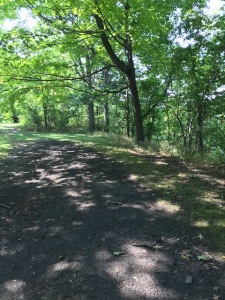
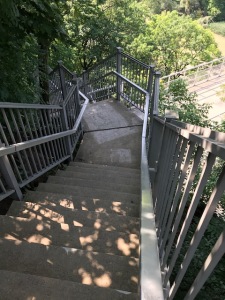
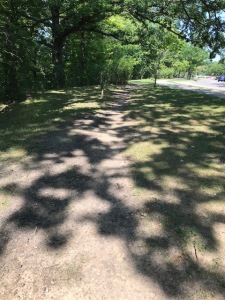
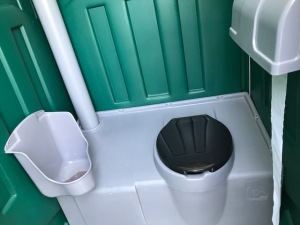


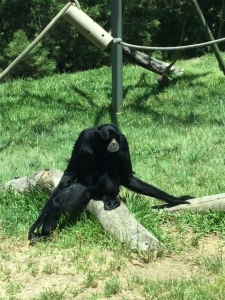 e pen with some food and dropped it on the ground. The whole family followed her, all of them walking right by my phone. One sniffed it. Another came so close, I thought it was going to step on it, or worse, urinate on it, but it did not.
e pen with some food and dropped it on the ground. The whole family followed her, all of them walking right by my phone. One sniffed it. Another came so close, I thought it was going to step on it, or worse, urinate on it, but it did not.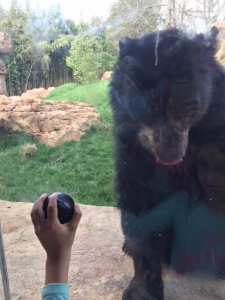

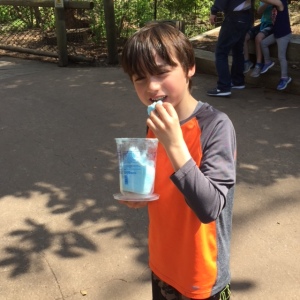

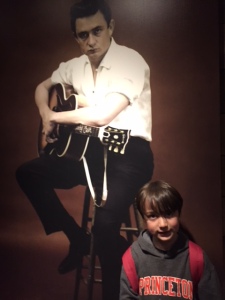
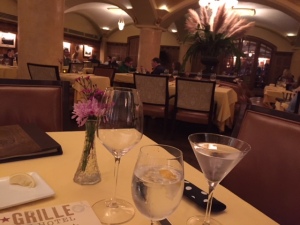


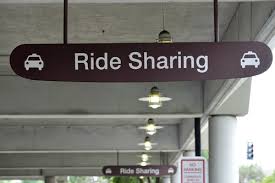 The flight attendant was coiffed but weathered, as they often are, and she had a slight Southern accent, which appealed to me. Apparently, my accent appealed to her, too. When she caught me with my seat belt off – I told her I needed to get something in the overhead bin – she said, “Well, now you owe me a glass of wine.” Trying to get into the Southern spirit, I said, “Wine! I’ll get you bourbon!” Halfway through the flight, she slipped a napkin into my hand in which was hidden a miniature bottle of Jack Daniels.
The flight attendant was coiffed but weathered, as they often are, and she had a slight Southern accent, which appealed to me. Apparently, my accent appealed to her, too. When she caught me with my seat belt off – I told her I needed to get something in the overhead bin – she said, “Well, now you owe me a glass of wine.” Trying to get into the Southern spirit, I said, “Wine! I’ll get you bourbon!” Halfway through the flight, she slipped a napkin into my hand in which was hidden a miniature bottle of Jack Daniels.
